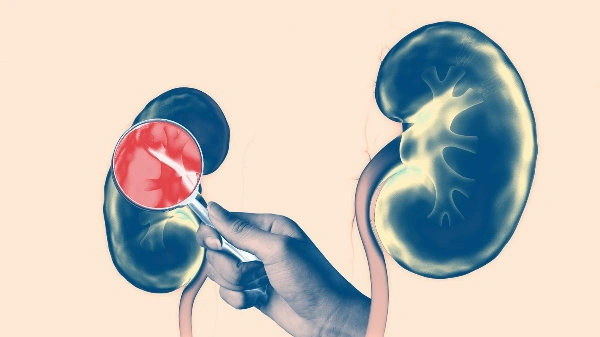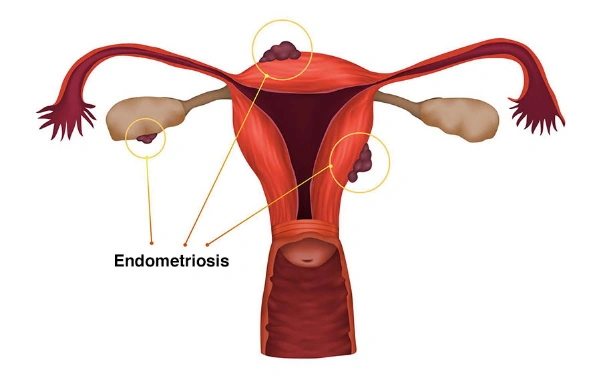Adpkd kidney disease

If you tested your DNA with a personal genomics service like 23andMe, AncestryDNA, FamilyTreeDNA, MyHeritage or another testing company, you can learn more about your risk factors for hundreds of diseases. By clicking the button above ⬆️, you can upload your raw DNA data file and receive a personalized 250-page health report with research links that is the most comprehensive.
The most prevalent type of PKD is Autosomal dominant polycystic kidney disease (ADPKD). This condition affects 1 out of every 400 to 1,000 individuals and is the foremost genetic renal disorder. Typically diagnosed between ages 30-50 due to presenting symptoms, ADPKDis commonly referred as "adult PKD."
The term "Autosomal dominant" denotes that one parent's PKDgene mutation or anomaly is enough to acquire the condition. Two distinct gene mutations causing ADPKD have been discovered by researchers. The majority of individuals with ADPKD exhibit defects in the PK D1 gene, while 1 out of every6 or 7 persons affected possess a faulty PK D2 gene.
PKD1 can be diagnosed earlier by healthcare providers as its symptoms manifest sooner, while individuals with PKD1 tend to experience a more rapid progression towards renal failure compared to those with PKD2. Moreover, ADPKD's rate of advancement varies from one person to another.
The development of cysts in the kidneys is due to a genetic flaw that hinders the standard growth process of certain cells, leading to ADPKD.
ADPKD is caused by defects in one of two distinct genes.
The genes that have been impacted are:
Approximately 78% of cases are attributed to PKD1.
Around 15% of cases can be attributed to PKD2.
ADPKD presents the same symptoms in both types; however, they may appear more intense in PKD1.
If one of the parents carries a defective PKD1 or PKD2 gene, there is a 50% likelihood that their child will develop ADPKD.
Follow the link of the selected polymorphism to read a brief description of how the selected polymorphism affects Renal failure and see a list of existing studies.
SNP polymorphisms related to the topic Renal failure:
| rs12917707 | UMOD as a predisposition gene for terminal renal failure. |
| rs3814995 | The nephrin gene (NPHS1) is associated with congenital steroid-resistant nephrotic syndrome. |
| rs41273726 | PKHD1 mutation increases the risk of autosomal recessive polycystic kidney disease (ARPKD). |
| rs1989248 | Increased risk of diabetic kidney disease. |
| rs7562121 | Increased risk of diabetic kidney disease. |
| rs61277444 | Increased risk of diabetic kidney disease. |
| rs17319721 | Albuminuria gene variant, is associated with the rate of increase in albuminuria in diabetic patients. |
| rs2467853 | A genetic locus associated with measures of renal function and chronic kidney disease. |
| rs4293393 | A break in the UMOD gene as a major predisposition gene for terminal renal failure. The gene directly affects levels of uromodulin, glomerular filtration rate and increased degree of albuminuria.higher risk of Crohn's disease. |
| rs1321517 | |
| rs2182505 | |
| rs2216711 | |
| rs2973049 | |
| rs4927186 | |
| rs4977388 | |
| rs6027504 | |
| rs6997279 | |
| rs9296668 | |
| rs10404821 | |
| rs10409299 | |
| rs10948668 | |
| rs11084831 | |
| rs11961816 | |
| rs12472051 | |
| rs12647735 | |
| rs28939695 | |
| rs36025606 | |
| rs56071124 | |
| rs72809865 | |
| rs73017308 | |
| rs73206603 | |
| rs76262407 | |
| rs113633432 | |
| rs114812377 | |
| rs117897666 | |
| rs141052170 | |
About The Author
Li DaliLi Dali, a National Foundation for Outstanding Youth Fund recipient, is a researcher at the School of Life Sciences in East China Normal University. He earned his PhD in genetics from Hunan Normal University in 2007 and conducted collaborative research at Texas A&M University during his doctoral studies. Li Dali and his team have optimized and innovated gene editing technology, leading to the establishment of a world-class system for constructing gene editing disease models.


